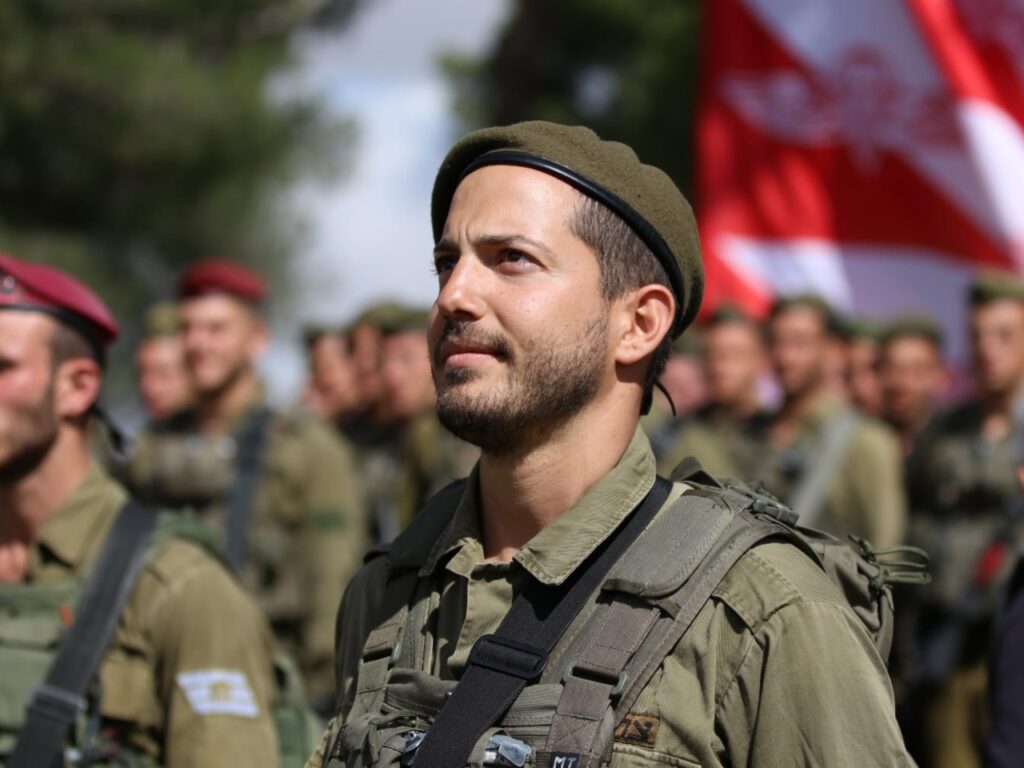An Argentine soldier’s journey from Buenos Aires to the frontlines of Gaza, defending Israel
During one operation, as we entered a building, an explosion ripped through the air, leaving me wounded as shrapnel struck my arm two centimeters above the elbow.
- 2 years ago
March 30, 2024
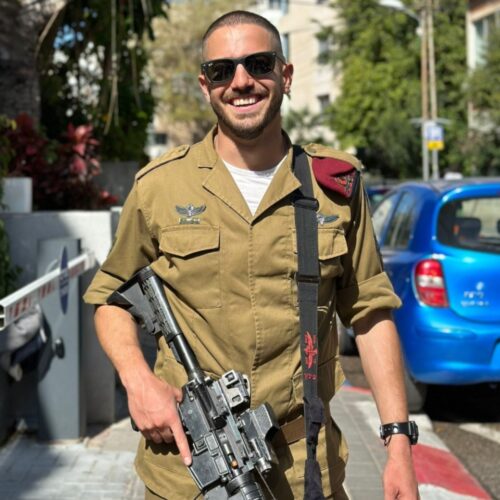
GAZA — On October 7, 2023, in Holon adjacent to Tel Aviv, missile alarms sounded at 6:30 a.m., rousing me from sleep. I watched videos on Telegram showing terrorists entering Israel. At 8:40 a.m., I messaged my former commander on WhatsApp, declaring my readiness, and received “excellent” in reply.
Communication broke when my commander lost signal in the kibbutz amidst the chaos. Suspecting missile interference, I contacted my mates on-duty in my former unit, who were coincidentally at home. They informed me of a bus pickup in an hour. Hastily, I packed and joined my battalion at the meeting point, prepared for combat.
Our unit arrived at the kibbutz on October 9, 2023, where Hamas terrorists brutally attacked. Proceeding to Be’eri, one of the most affected areas, we confronted the grim reality. The devastation claimed 260 lives out of 430 inhabitants, including innocent infants. We conducted a search operation and found only bodies amidst the destruction.
Then, on November 4, 2023, I embarked on my first mission into Gaza. During one operation, as we entered a building, an explosion ripped through the air. Despite retaining consciousness throughout the ordeal, the noise from the blast rendered me momentarily deaf.
Read more stories on the Israeli-Palestinian Conflict at Orato World Media.
“After graduation next year, I would make Aliyah (immigration to Israel) and serve in the army”, I announced to my family
Born and raised in Vicente López to a Jewish family, I cherished my Argentine roots. I also appreciated the active role my religion played in my life. My curiosity about my ancestry intensified during a period I refer to as “the question stage.” It prompted me to explore my grandparents’ history. Their stories of resilience profoundly shaped my path and understanding of life. One was expelled from a German university due to his Jewish identity. The other survived beatings and organized massacres in Poland.
At 21, an exchange program took me to St. Gallen University in Switzerland. A prestigious institution attended by dukes, I expected to meet the most cultured and educated individuals. However, I encountered anti-Semitism and ignorance-fueled hatred towards Israel. This experience fueled my passion to defend and appreciate Israel’s existence, which I believe prevents a second Holocaust.
All these events ignited a passion within me to defend Israel rather than take it for granted. Upon returning from Switzerland, I convened my family to announce my decision. “After graduation next year, I will make Aliyah (immigration to Israel) and serve in the army,” I said. At 23, I graduated as a Business Administrator from Di Tella University in Buenos Aires. Immediately in 2019, I traveled to Israel to accomplish my mission.
I joined a special unit in the Israeli Army despite being beyond the typical age of conscription. After rigorous physical and mental tests, I earned my red beret. I became a combatant, and began serving as a soldier, committed to patrols, guards, and arrests. Furthermore, I informed my military colleagues that I am of Argentine origin. However, my decision to defend Israel stems from its precarious position, surrounded by enemies and threats to its existence. Similarly, If Argentina ever requires my defense, I am prepared to serve just as steadfastly.
Deployment and training for combat in Gaza
As I waited with my fellow soldiers for the bus to transport us to the battleground, I arrived in civilian attire with only my pistol. We headed to the base. Yet, a shortage of soldiers forced us to wait for two days in the West Bank until reinforcements arrived. Luckily, my commander approved my recruitment immediately, stating, “I’ll sign whatever, but let him in, he’s a good soldier.”
The following day, I was provided with a uniform and the corresponding weapon, preparing me for combat. During the month preceding the conflict, we faced significant challenges. Our training sessions covered various scenarios expected in Gaza. This included the intricacies of entering buildings, a skill distinct from conventional warfare tactics used in Lebanon. We trained extensively at the shooting range, honing our skills from dawn to dusk.
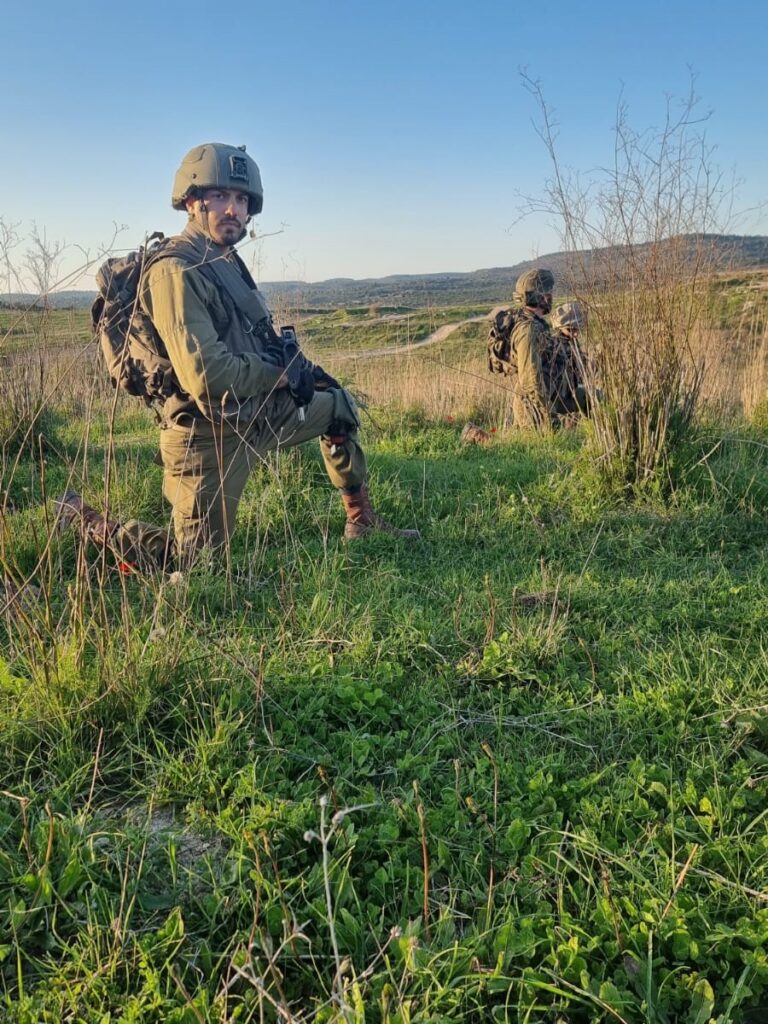
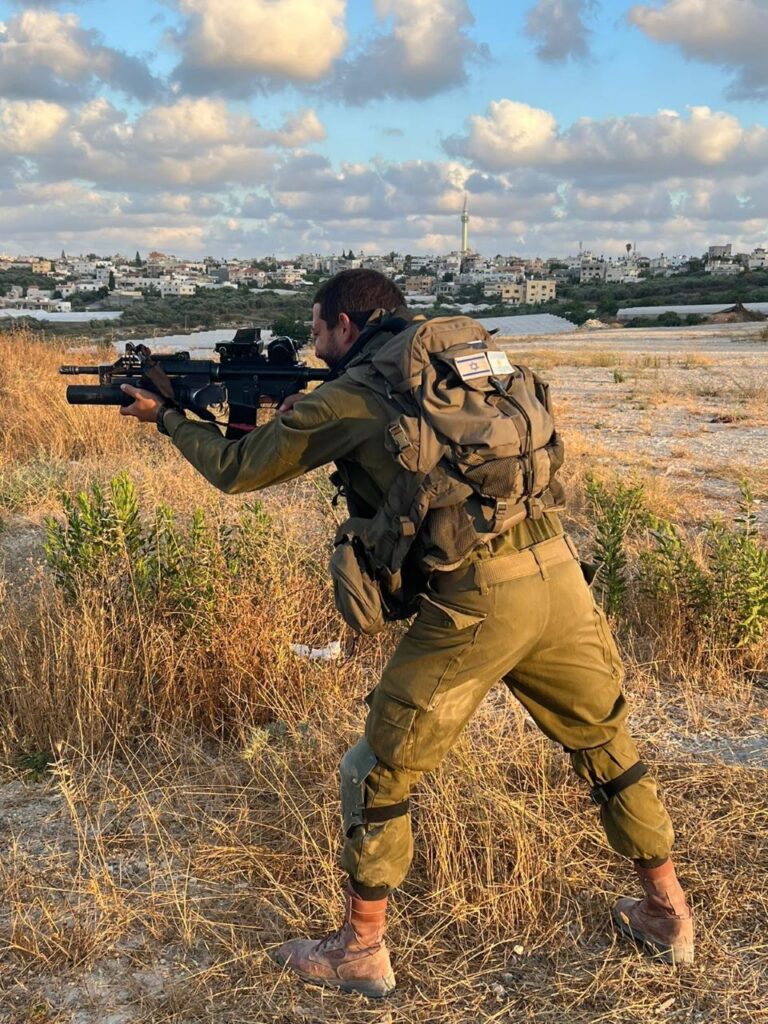
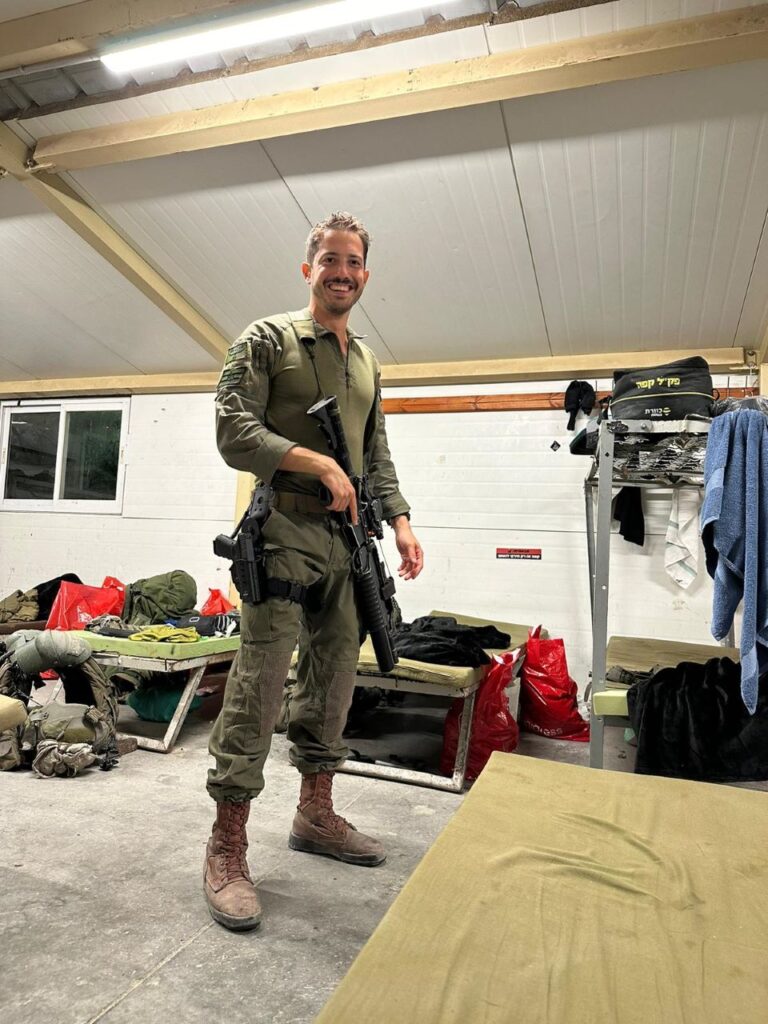
Before the war, most of us had never set foot in Gaza. We experienced constant apprehension, particularly before entering the area. However, our focus remained on improving ourselves as soldiers rather than succumbing to fear. This mindset enabled us to overcome our anxieties and perform our duties with professionalism.
As I entered Gaza for the first time on November 4, 2023, our mission briefing assigned us the task of encircling a hospital. Intelligence indicated that terrorists were holding hostages inside, necessitating a specialized rescue operation. Upon securing the hospital, we found no hostages or patients, only terrorists. We fought them and they met their end at our hands.
“Hello, I am fine, but unfortunately I have been shot,” I spoke to my mom on the phone
Upon completing the mission and securing additional territory in Gaza, my commander ordered me and two others to depart with two tanks. Our job: prevent a recurrence of an incident from two days prior, when terrorists detonated a tank with explosives. Our task was to guard the tanks vigilantly. While stationed behind a wall, fully shielded and aiming my weapon, an explosion sent shrapnel into my arm.
Swiftly, my colleague applied a tourniquet and escorted me to a doctor inside a building for initial treatment. I remember each moment distinctly. For protection, they placed me inside the tank and moved me to a location with more medical staff. A Jeep evacuation from Gaza followed. Outside the conflict zone, a helicopter airlifted me to Tel HaShomer hospital for a four-hour surgery.
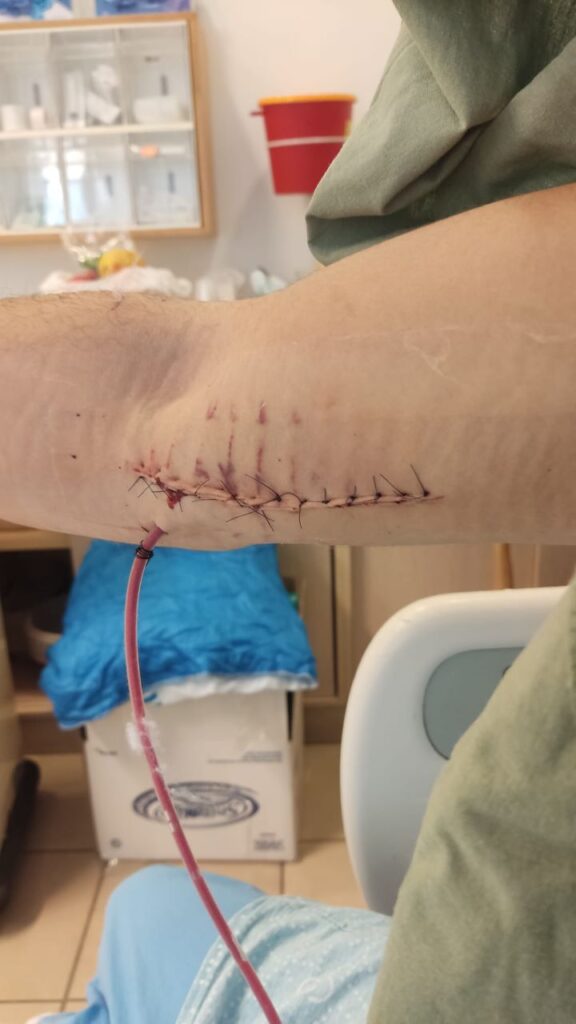
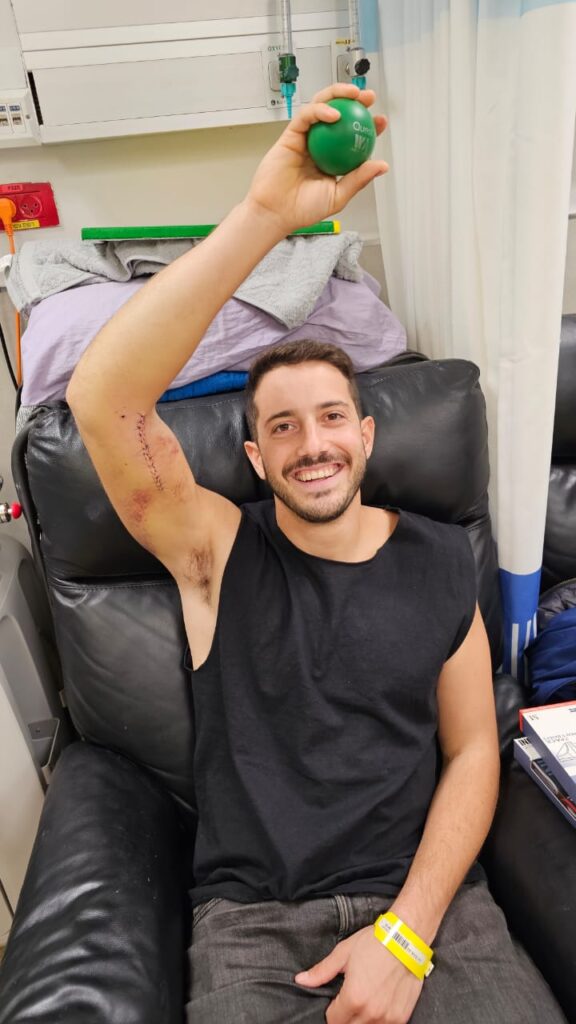
When the doctor assessed my injury and declared surgery necessary, he urged me to contact my mother before the operation. Despite the alarming news, my call brought relief to my mother, who had not heard from me in three weeks. Confused, I managed to use a phone lent by an unremembered individual. I had the foresight to jot down my mother’s number in a notebook before my deployment, which proved invaluable. When I reached out to her in Buenos Aires, I calmly stated, “Hello, I’m fine, but unfortunately I have been shot.”
At first, I mistook the cause of my injury for a sniper’s bullet due to the absence of sound. A visiting soldier later informed me a bomb exploded. It sent shrapnel into my arm, causing my wounds.
Ensuring the safe release of all hostages amidst physical and psychological challenges
Shrapnel severed my arm’s main artery, necessitating the replacement of the vein during surgery. It caused severe nerve damage, which led to ongoing pain and numbness in my hand and fingers. The dread of a potential amputation haunted me due to the lifelessness and immobility of my arm. However, swift evacuation and immediate surgery in Israel saved my arm on the same day I departed from the battlefield. I cannot muster the strength to squeeze a deodorant bottle, much less handle a firearm. My hand is currently disabled.
Days before I got injured, a deadly attack took the life of a friend. This loss left a deep void within me. I am now receiving full-time psychological care to help bear this burden. Nevertheless, I remain determined to return to the army, despite foreseeing several months of physical and psychological recovery ahead.
In Gaza, my lost notebook held ephemeral joys. For example, during a blackout, we united in a soft chorus to wish a fellow soldier “Happy Birthday.” The gesture warmed our hearts. Joy also arrived with the daily food tank, usually bearing canned goods, but sometimes, delicious chocolate protein bars. Our happiness was quantified by these bars: two each on good days, or one split among three on bad days.
In the military, camaraderie is paramount; the comrade’s needs come first. My battalion – comprised of 45 individuals including a South African, an American, myself, and Israelis – shares a singular goal: defending our people. Today, I often think of the kidnapped victims’ ordeal more than of my fellow soldiers. Knowing that my friends are safe solidifies our shared resolve to serve and secure our mission, ensuring the release of every abducted person.

